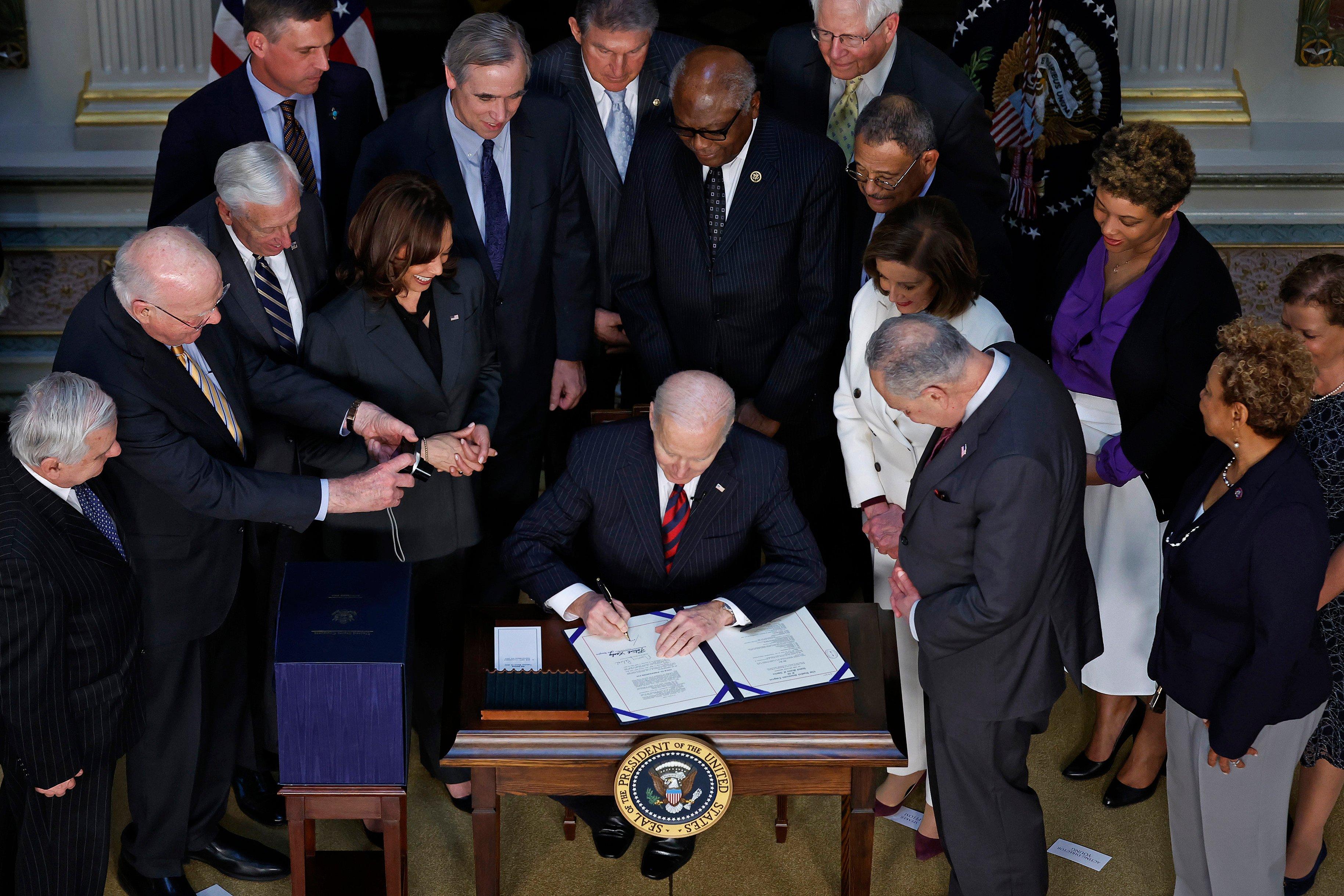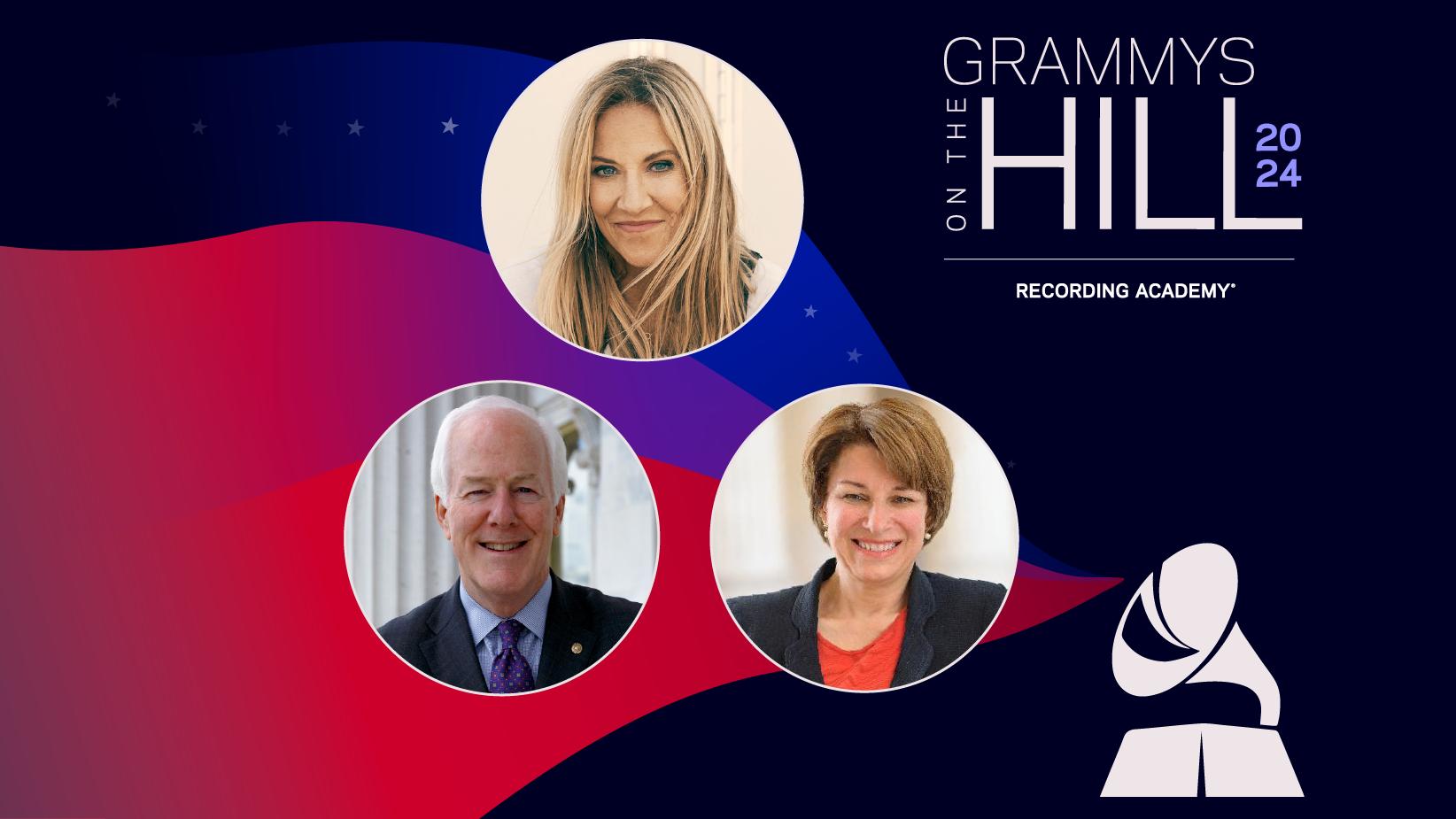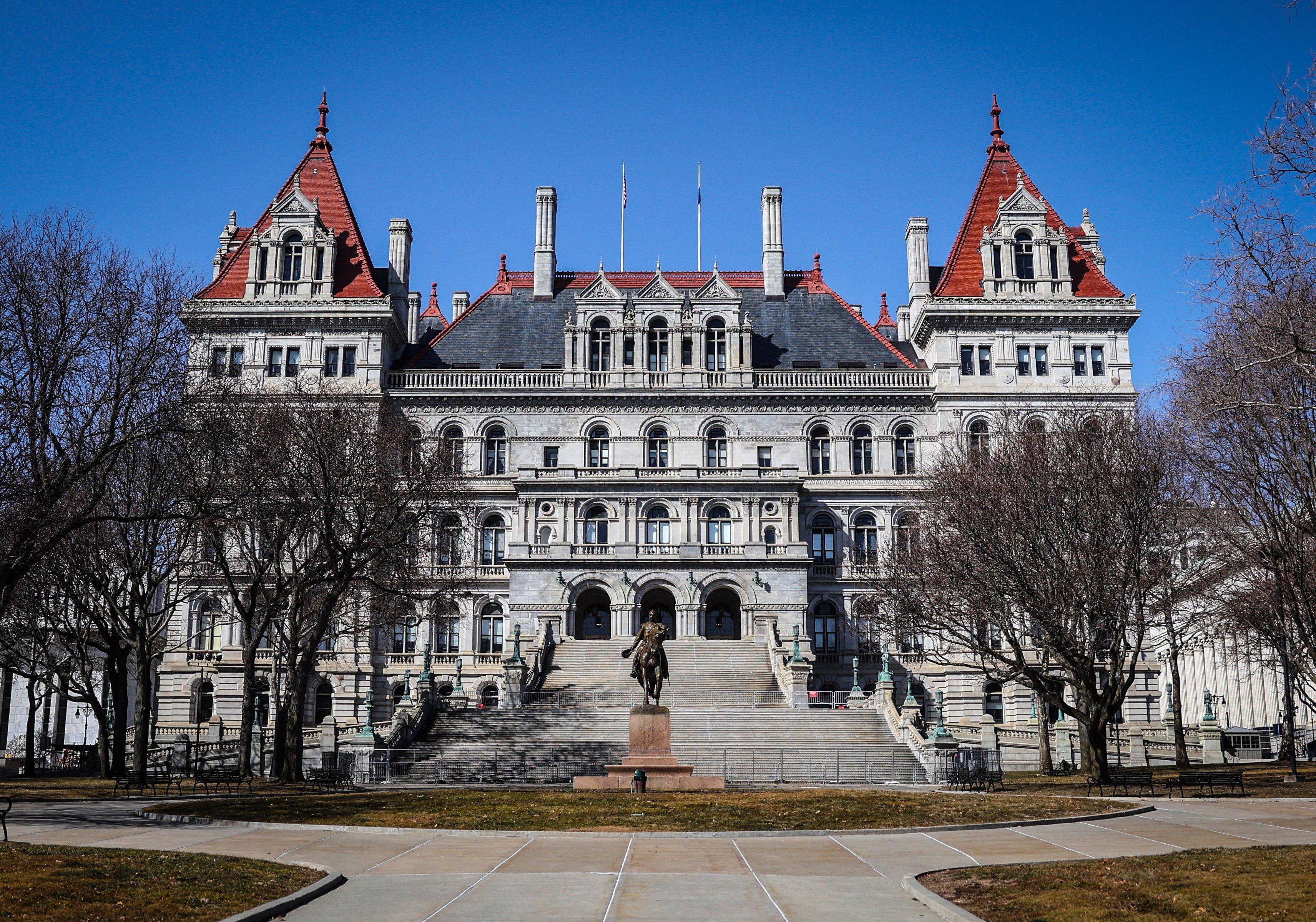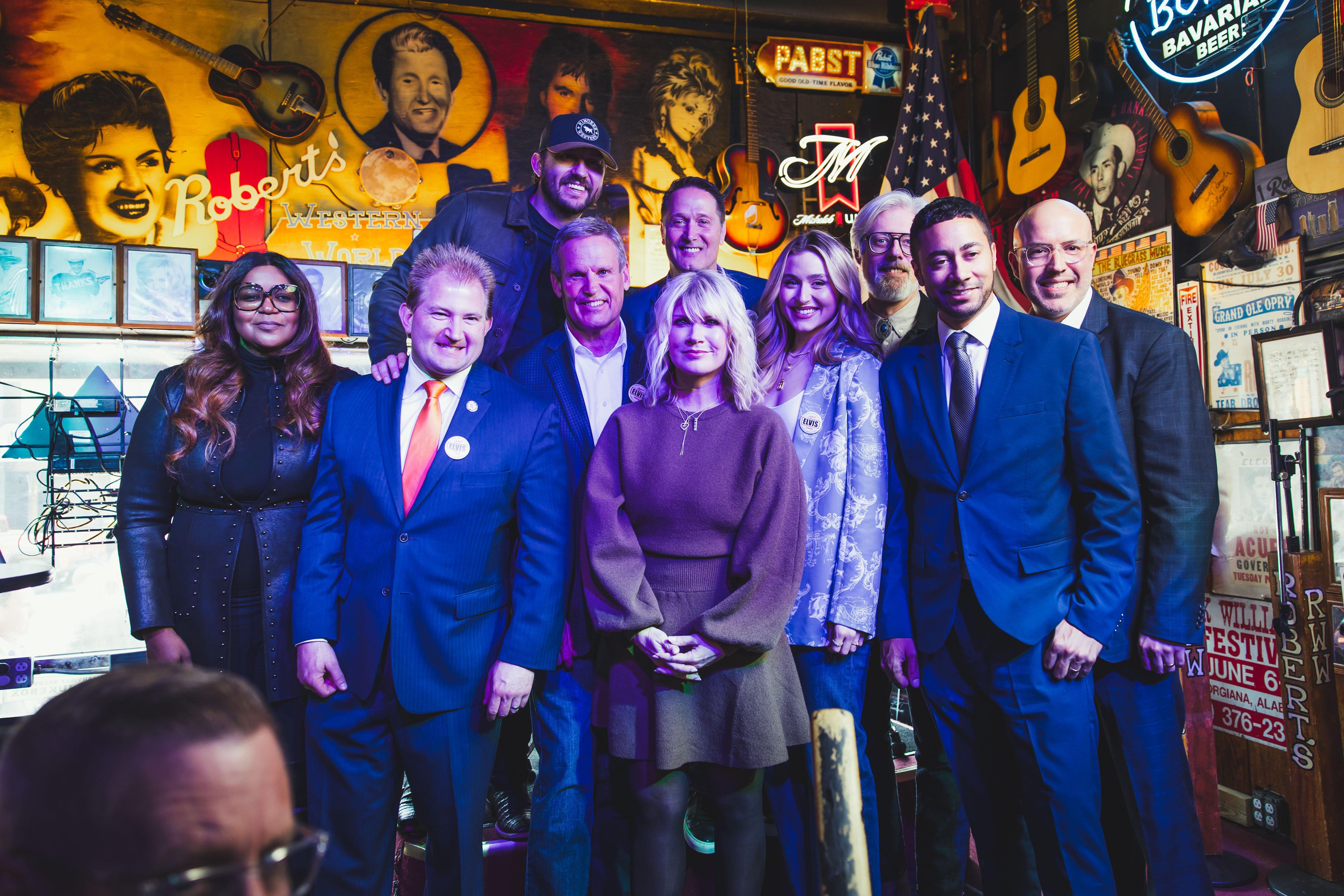Photo: Chip Somodevilla/Getty Images

President Biden signs the Consolidated Appropriations Act
news
President Biden Just Signed The Consolidated Appropriations Act Of 2022 — And It Contains Millions For The NEA
On Tuesday, the Omnibus package was signed by President Biden – including $180 million for the National Endowment for the Arts
The Consolidated Appropriations Act of 2022 — better known as the Omnibus package — was signed by President Biden on March 15 after Congress passed the $1.5 trillion spending bill on March 11. This package covers funding for the entire government for the current fiscal year (through September 30) after more than a year of budgets set based on FY2021 spending.
Included in the spending are FY22 budgets for key arts- and music-related agencies and programs — and most notably, the National Endowment for the Arts received a $12.5 million increase for a total of $180 million.
Established by Congress in 1965, the National Endowment for the Arts is an independent federal agency. Not only is it the largest funder of the arts and arts education in communities nationwide; it's a catalyst for public and private support for the arts.
By advancing equitable opportunities for arts participation and practice, the NEA fosters and sustains an environment in which the arts benefit everyone in the United States. The Arts Endowment awards grants for projects to nonprofit organizations nationwide and supports fellowships for American writers and translators of world literature — as well as honorifics in jazz and the folk and traditional arts.
This is the highest funding level in the NEA's history and will go to support additional grants across the country. In the Spring of 2021, the Recording Academy submitted testimony to the House and Senate Appropriations Committees requesting the NEA receive at least $180 million in funding. And last week, the Academy submitted a similar request for next year's funding (FY 2023) for the NEA at a level of $201 million.
This package also provides funding for the Department of Education, including a $36 million allocation for the Arts in Education Additionally, the bill included a number of specific earmark requests by Members of Congress for arts-related projects in their local communities. For example, Rep. Robin Kelly received nearly $500,000 in funding for schools on Chicago's south side that will allow students to participate in performing arts during the school day including theatre, dance, and music classes.
The Academy applauds Congress for this historic support but continues to call on Congress to better support the arts and music in federal funding. The arts are one of the country's largest sectors and are in need of robust investments from the federal government. But for now, this is a boon — no doubt about it.
"Through supporting music and the arts, the NEA improves student development and advances cultural achievements," Todd Dupler, Acting Chief Advocacy & Public Policy Officer of the Recording Academy, said before the House Committee. "Robust funding for the NEA will ensure the agency can provide grants across all 50 states, while promoting more equitable access and reaching more diverse audiences.”
Keep checking back at the Recording Academy's Advocacy page to find out how this exciting development for the NEA will ripple forth — and provide aid to all music creators.
The Recording Academy Is In Support Of The California Arts And Music in Schools Ballot Initiative

Photos (L-R): U.S. Senate Photographic Studio; Victoria Will; U.S. Senate Photographic Studio - Frank Fey
news
GRAMMYs On The Hill Awards 2024 Honorees Announced: Sheryl Crow, Sens. John Cornyn & Amy Klobuchar
The annual event hosted by the Recording Academy in Washington D.C., will celebrate music and advocacy by bringing together congressional leaders and artists to honor those who champion creators' rights.
On Tuesday, April 30, the Recording Academy will host its annual GRAMMYs on the Hill Awards, Washington's premier annual celebration of music and advocacy, bringing together congressional leaders and music makers to recognize those who have led the fight for creators' rights.
Sponsored by City National Bank and benefitting the GRAMMY Museum, this year's awards will honor nine-time GRAMMY winner Sheryl Crow and Senators John Cornyn (R-TX) and Amy Klobuchar (D-MN) for their contributions to support music creators. Hosted by singer and actress Candiace Dillard Bassett, the awards dinner will be held at the Hamilton Live in Washington, D.C., and will feature live performances and special guests.
"Protecting the rights of creators lies at the core of the Recording Academy's mission," said Harvey Mason jr., CEO of the Recording Academy. "GRAMMYs on the Hill is an opportunity to celebrate the artists and our nation's leaders who champion this cause, and to acknowledge music's unifying power. We're grateful to Sheryl and Sens. Cornyn and Klobuchar for their tireless efforts in safeguarding the music community and are thrilled to be recognizing them later this month in our nation's capital."
"Receiving this award from the Recording Academy is a tremendous honor for me, because protecting the rights of creators is more important now than ever before,” said Crow. “In this age where technology is changing the world faster than we can adapt, we need clear eyes to see both the opportunities and the challenges ahead, so that artists are not disadvantaged any more than they already are. Music nourishes our humanity, and I am proud to be recognized as an advocate for the protection of the people who make it."
"As a Texan, a love of live music is in my blood, and I've been proud to lead the charge on legislation that helps artists, entertainers, and venues meet the needs of their fans, including the Save Our Stages Act and the Fans First Act," said Sen. Cornyn. "I want to thank the Recording Academy for honoring me, and I look forward to continue to work on behalf of performers and fans across Texas and the nation."
"It's an honor to be recognized by the Recording Academy, an organization that uplifts performers, songwriters, and other music professionals in our country," said Sen. Klobuchar. "Music has the power to bring us together and it is something we can never take for granted. That’s why I fought to pass the bipartisan Save Our Stages Act with Senator Cornyn to ensure independent arts venues survived the pandemic, and why we are working together to improve the ticketing experience with the Fans First Act. There's nothing like live music and concerts, and I remain committed to ensuring artists can continue to share their music with the fans who love it."
Crow has dedicated much of her life to activism, supporting policies and philanthropic endeavors close to her heart. In 2000, she co-founded the Recording Artists' Coalition with previous GRAMMYs on the Hill honoree Don Henley to protect creators' rights and change unfair industry practices. Her advocacy for artists and songwriters continued through congressional testimony, editorials, artist petitions, and more. In 2009, the Recording Artists' Coalition formed an alliance with the Recording Academy to continue its mission as a program within the Academy's Advocacy office. Recently, she has been vocal about the threat that AI presents to music creators, including on her new song "Evolution," which grapples with the future impact of artificial intelligence on humanity and the planet. As a philanthropist, Crow is known for her passionate support of multiple charities, including MusiCares, The Breast Cancer Research Foundation, The World Food Program, Feeding America, ADOPT A CLASSROOM, the Elton John AIDS Foundation, Pelotonia, the Delta Children's Home and many other worthy causes.
Read more: How The Recording Academy Is Redoubling Its Efforts To Protect Creators From AI Risks
Crow is a nine-time GRAMMY winner and was inducted into the Rock and Roll Hall of Fame in 2023. Her first nine studio albums have sold 35 million copies worldwide; seven charted in the Top 10, and five were certified for multi-platinum sales. Her songs defined the third wave of feminism, a rocker's ability to sweep the pop charts without losing any edge and enough wide-open Midwestern joy to captivate the world.
Cornyn and Klobuchar are the congressional honorees being recognized for their stalwart support of creators and their collaborative efforts championing key policies in support of the music community. During the COVID-19 pandemic, Sens. Cornyn and Klobuchar provided a critical lifeline for music through the Save Our Stages Act, which provided $16 billion in federal assistance to shuttered venues and represents the largest federal investment in the arts in U.S. history. In this Congress, they are working to reform live event ticketing through the Fans First Act. Introduced in December 2023, the legislation would address flaws in the ticketing marketplace by increasing transparency, protecting consumers from deceptive practices, and holding bad actors accountable.
The day after the event, on May 1, the Recording Academy will host the annual GRAMMYs on the Hill Advocacy Day, which brings current and past GRAMMY winners and nominees, along with other esteemed industry leaders, to meet with lawmakers to discuss issues facing today's music creators. The day is recognized as Capitol Hill's largest and most prestigious legislative event for music. This year, music creators will convene with members of Congress to advance key issues that the Academy and its members continue to advocate for, including:
Protecting the image, likeness and voice of individual creators from AI fakes through legislative measures such as the No AI FRAUD Act and the No FAKES Act discussion draft.
Reforming the live event ticket marketplace to better protect artists and fans through legislation including the Fans First Act and the TICKET Act.
For the first time in 2024, GRAMMYs on the Hill will expand beyond the traditional two-day event to reflect Music's Biggest Week in Washington. On May 3, the GRAMMYs on the Hill Future Forum will be held in partnership with the Human Artistry Campaign, and will explore the impact of artificial intelligence on the music community.
Since its inception, GRAMMYs on the Hill has hosted award-winning artists and applauded congressional leaders alike, including 13-time GRAMMY winner Pharrell Williams, then-Vice President Joe Biden, two-time GRAMMY winner Garth Brooks, former United States Secretary of State and Sen. Hillary Rodham Clinton (D-NY), four-time GRAMMY winner Missy Elliott, former Sen. Orrin Hatch (R-UT), 28-time GRAMMY winner Quincy Jones, seven-time GRAMMY winner John Mayer, former Speakers of the House Nancy Pelosi (D-CA) and Kevin McCarthy (R-CA), 16-time GRAMMY Winner Alicia Keys, U.S. Senate Majority Leader Chuck Schumer (D-NY), and more. The annual advocacy event has also led to several major legislative wins for the music industry, most notably the Music Modernization Act.
Ticketing Reforms Make A Big Leap In Maryland: Here's What You Need To Know

Photo: Aaron Foster via Getty Images
news
Ticketing Reforms Make A Big Leap In Maryland: Here's What You Need To Know
This legislation introduces a series of pivotal measures aimed at safeguarding consumers and enhancing transparency in the ticketing industry.
The Recording Academy celebrated last week the advancement of improved ticketing reforms as Maryland achieves a groundbreaking milestone with the passage of SB 539. This legislative triumph not only means a new era of consumer and artist protections for live event tickets, but also positions Maryland as a national leader in holding ticket resellers accountable for fraudulent and deceptive practices hosted on their platforms.
"While fans suffer because of this broken system, so do artists" declares a collective statement of support from the Fix the Tix Coalition, which includes the Recording Academy as a founding member. "Predatory resellers view tickets as nothing more than commodities to be traded for outrageous sums, throwing away the cultural and communal value they provide for our society. They exist to undermine the hard work, talent, and livelihoods of artists, inserting themselves as unnecessary and unwanted middlemen who make their money off the backs of the artists and venues who partner to make these events happen."
This legislation introduces a series of pivotal measures aimed at safeguarding consumers and enhancing transparency in the ticketing industry. First, the bill prohibits deceptive practices such as the selling of speculative or counterfeit ticket sales, shielding concertgoers from exploitative practices used by some ticket brokers and resellers. Second, online ticket resale platforms will face increased accountability under Maryland's Consumer Protection Act.
Additionally, transparent pricing practices will be enforced throughout the ticket purchasing process, ensuring consumers have clear and accurate information. Most notably, this includes standards that ensure a breakdown of the face value price, and any fees, is made clear to the consumer throughout the purchase.
"We're getting used to paying these exorbitant prices. It's funny, now if you get a ticket for face value, that's apparently a big deal," stated Delegate C.T. Wilson, who introduced the legislation in Maryland's House. "That shouldn't be a big deal. We've been tricked into accepting this."
The enforcement of SB 539 seeks to dismantle predatory practices that have long plagued the ticketing industry. From the moment a show is announced, genuine fans are confronted with the uphill battle against scalpers and resellers, who exploit loopholes and employ deceptive tactics to profit at the expense of both fans and artists.
"Legislation like SB 539 is vital to protecting fans, preserving equitable access to entertainment, and restoring balance to the currently broken ticketing ecosystem," the collective statement emphasizes. By removing the profit motive from these practices, such as using illegal bots and price gouging, Maryland's bold legislative actions sets a precedent for other states to follow suit in protecting consumer rights and ensuring a better concert experience for fans and artists alike.
The Recording Academy was one of the many stakeholders who actively worked to pass the legislation and will continue to work towards equitable ticketing practices across the country. There is a collective aspiration that the passage of this legislation in Maryland will serve as a catalyst for change at both the local and federal level.
The Academy remains a staunch advocate for ticketing reform, ensuring that every fan can enjoy the magic of live entertainment without fear of deception or exploitation.
The New York State Senate Passes Bill to Protect Creative Expression: Here's What You Need To Know

Photo: Thomas A. Ferrara/Newsday RM via Getty Images
news
The New York State Senate Passes Bill to Protect Creative Expression: Here’s What You Need To Know
Led by Senators Hoylman-Sigal and Bailey, the senate passage of S. 1738 continues the forward momentum for creative expression in New York, signaling the state senate’s commitment to upholding free speech.
In a significant stride towards protecting musicians' creative expression, the New York State Senate passed S. 1738 on March 27. This bill is aimed at safeguarding the free speech of artists, a fundamental part of making music. The Recording Academy has been a staunch advocate of S. 1738, working to advance the legislation in the last two legislative sessions of 2022 and 2023.
Led by Senators Hoylman-Sigal and Bailey, the senate passage of S. 1738 continues the forward momentum for free expression in New York, signaling the state senate’s commitment to upholding the fundamental rights of creators to express themselves through their art. The legislation stipulates that a defendant's artistic works, such as song lyrics, cannot be used as evidence against them in a criminal trial unless it can be proven beyond reasonable doubt that these expressions are admissible.
Researchers have identified nearly 700 cases where lyrics have been used as evidence against hip hop artists, including several dozen in New York. Protecting the First Amendment rights of New York artists is critical to prevent a chilling effect on the state’s music community that plays a vital role in the economic landscape of New York. The music industry in New York contributes close to $20 billion to the state's GDP annually, supporting over 200,000 jobs. From iconic recording studios in New York City to vibrant music scenes in upstate cities like Albany and Buffalo, the state's diverse music community contributes to its reputation as a global hub for creativity and innovation. New York attracts millions of visitors each year to experience live performances, music festivals, and other events throughout the state.
The Recording Academy's support for this legislation in New York is part of a broader effort to champion similar legislation across the country at the state level. In California and Louisiana, the Recording Academy played a pivotal role in passing new laws that solidified the protection of creators' free speech rights. Additionally, in Maryland, Missouri, and Georgia, the Academy has been advancing similar legislation. A recent Advocacy Day in Annapolis, supporting the PACE Act, allowed Recording Academy members from Maryland to meet with legislators and urge them to protect creative and artistic expression.
At the federal level, the Recording Academy has been advocating for the Restoring Artistic Protection Act, also known as the RAP Act since its introduction. Just like at the local level, this legislation aims to protect the First Amendment rights of artists nationwide. Recording Academy CEO, Harvey Mason jr., and Chair of the Recording Academy's Black Music Collective, Rico Love, released a statement during the introduction of the RAP Act in 2022:
"Today's introduction of the RAP Act in the House of Representatives is a crucial step forward in the ongoing battle to stop the weaponization of creative expression as a prosecution tactic," they stated, “ and we will continue to work…to advance the protections in this bill that ensure all artists can create freely without fear of their work being criminalized."
Now, with the successful passage of S. 1738 in the New York State Senate the Recording Academy will continue to work with Academy members to help advocate for this necessary legislation, including bringing Academy members to Albany next month to advocate for the bill’s passage through the state assembly. Ultimately, the goal is to see S. 1738 signed into law, providing much-needed protections for musicians and affirming New York's commitment to upholding the principles of free speech and artistic expression.
As the legislative journey continues, Recording Academy advocates will continue to advance this critical piece of legislation and ensure that the voices of musicians are valued and protected in the state of New York.
A Victory In Tennessee: Governor Bill Lee Signs The ELVIS Act Into Law

Photo: Brandon Hull
news
A Victory In Tennessee: Governor Bill Lee Signs The ELVIS Act Into Law
The signing ceremony hailed as the "coolest bill signing ever" by Gov. Lee, took place at Robert's Western World, an iconic Honky Tonk in downtown Nashville.
On Thursday, March 21, the Recording Academy celebrated an extraordinary moment for Tennessee's vibrant music community as Governor Bill Lee signed the groundbreaking ELVIS Act into law. The signing ceremony hailed as the "coolest bill signing ever" by Gov. Lee, took place at Robert's Western World, an iconic Honky Tonk in downtown Nashville, showcasing the deep connection between music and culture in the state.
Surrounded by Country music stars Luke Bryan and Chris Janson, Gov. Lee emphasized the significance of protecting musicians, acknowledging their role in shaping Tennessee's identity and history. "This industry has helped forge and created the identity of this state" stated Gov. Lee, "and what you've done is not only created and forged our identity and our history here, but much of what is happening in this country."
When discussing the implications of what this legislation means for creators across the state, Gov. Lee highlighted the dangers of AI now being prevented. "[AI] can steal those gifts, it can impersonate those gifts, it can subsequently create fake works that rob those artists of their intellectual property that has made their success, and we can't let that happen. Tennessee should lead on this issue, and we are, this is the first bill of its kind."
Also attending the signing ceremony were Gebre Waddell, the Academy's national Secretary/Treasurer and Chair of the Tennessee Entertainment Commission, artists Natalie Grant and Matt Maher, who testified in support of the ELVIS Act before the Tennessee legislature, and additional artists and elected leaders representing the Academy's Memphis and Nashville Chapters.
In January, the Recording Academy joined Gov. Lee, House Majority Leader William Lamberth and Senate Majority Leader Jack Johnson, and dozens of artists, songwriters, music executives, and industry groups to introduce the Ensuring Likeness, Voice, and Image Security (ELVIS) Act. The Recording Academy's support for the ELVIS Act, including advocacy days and mobilization of music creators, played a pivotal role in the bill's success. By uniting Tennessee's artists and legislators, the Recording Academy spearheaded a collective effort to combat AI fraud and safeguard the authenticity of music creation.
Tennessee has a booming music community that supports more than 61,000 jobs across the state and contributes $5.8 billion to the state's GDP. During the signing ceremony, Chris Janson highlighted his gratitude for this legislation supporting the growing music community in Tennessee. "This is a serious thing. I am a songwriter first; I've always said that; I'm an artist second. I love what I do, I'm grateful for my job, and I am so grateful for leadership who cares." Janson directly thanked the members of Tennessee's General Assembly for supporting this legislation. "We are grateful for you guys protecting our community," declared Janson, "Nashville is nothing without the music community."
The signing of the ELVIS Act marked a historic milestone as the first legislation in the nation focused on safeguarding the core elements of artistic identity, including voice and likeness, in the context of AI. This groundbreaking law updates Tennessee's existing right to publicity, extending protections to songwriters, performers, and all individuals' voices from exploitation by artificial intelligence.
The swift progress of the ELVIS Act through the Tennessee legislature reflects the industry's urgent need for such protections. "The Recording Academy celebrates the passage of the ELVIS Act as a groundbreaking achievement in the effort to protect human creators in the age of AI," said Recording Academy CEO Harvey Mason jr. "This milestone represents the power of collaboration, and it was a privilege to work with our partners in the Human Artistry Campaign, Governor Lee, and the Tennessee state legislature to move the ELVIS Act forward. Today is just the beginning — as AI continues to develop, the Recording Academy and our members will continue to support meaningful legislation across the country that uplifts music people and human creativity."
Looking ahead, the ELVIS Act sets a precedent for future legislation at both the state and federal level. As the Recording Academy remains committed to supporting and protecting human creativity, the ELVIS Act serves as a beacon of hope for music creators everywhere, ensuring a future where artistic expression thrives free from exploitation.
How The Recording Academy Is Redoubling Its Efforts To Protect Creators From AI Risks
